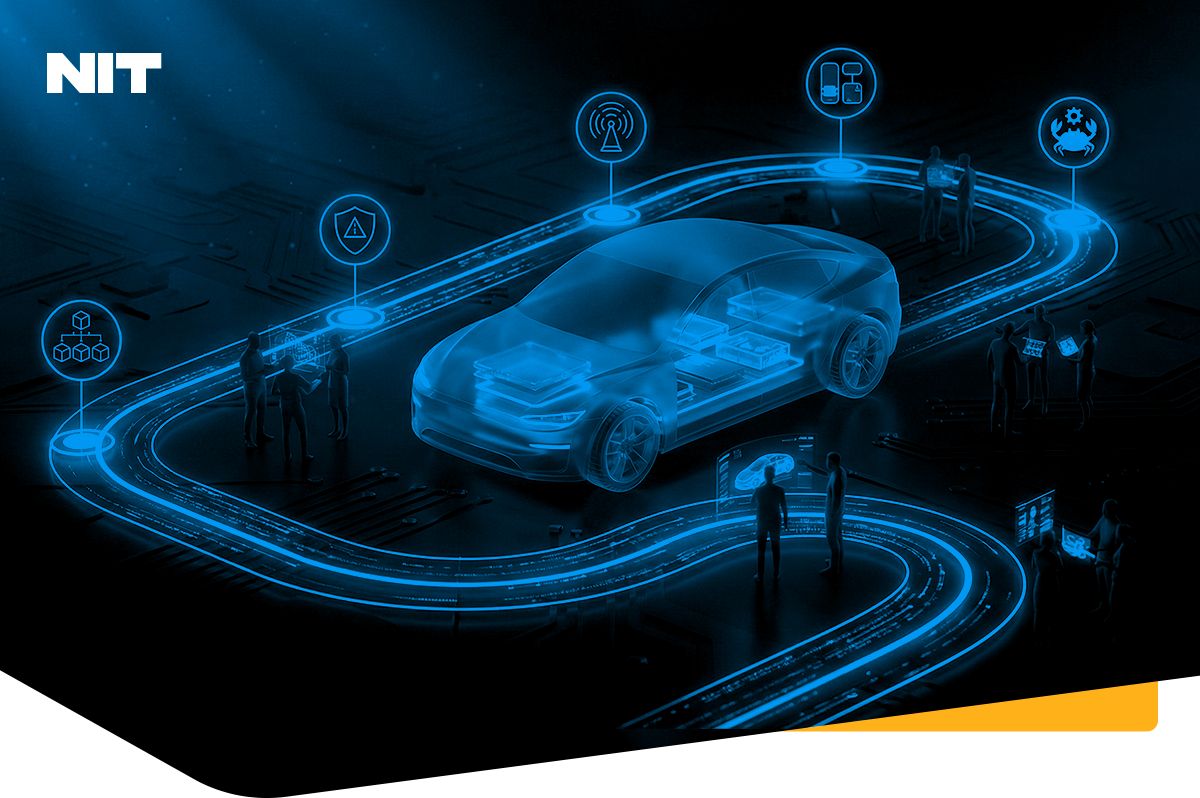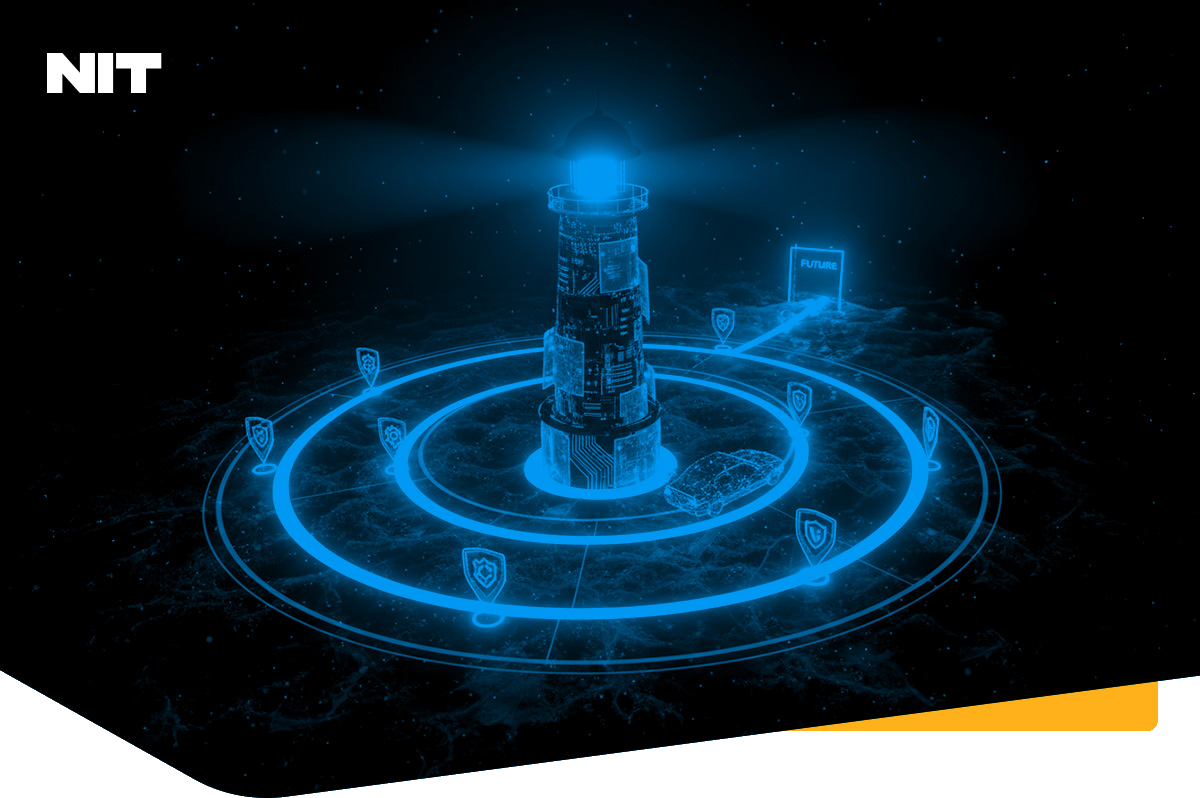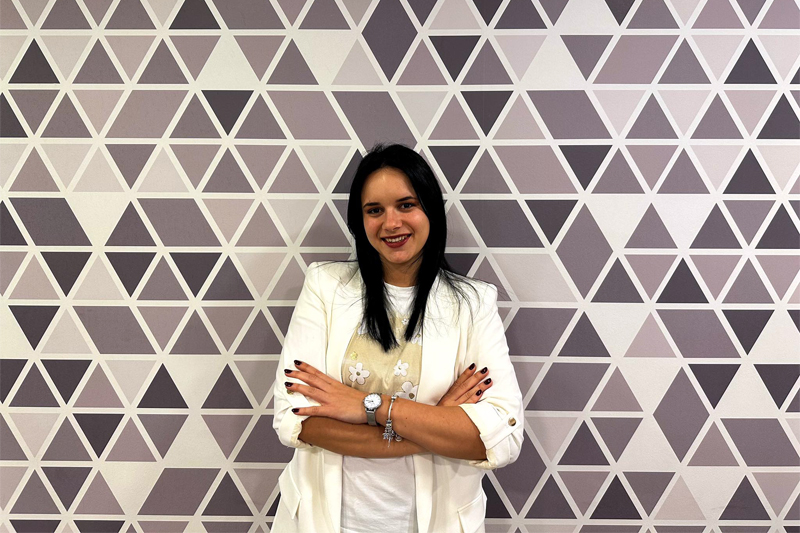
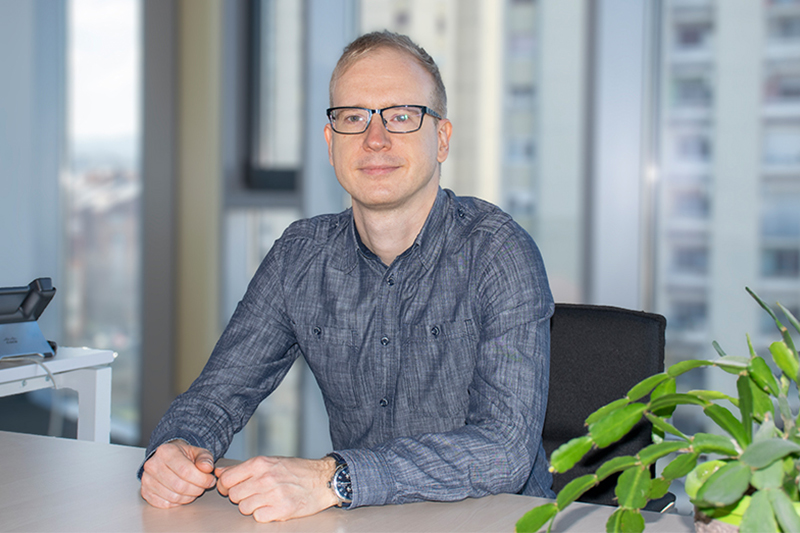
This time, we talked to our Python programming instructor, Ivan Kaštelan. Dr Ivan is an associate professor at the Faculty of Technical Sciences in Novi Sad, the same Faculty where he was once a student and where he got his doctorate degree in 2014. Ivan teaches at the department of computing and system control. He loves fundamental sciences like mathematics and physics and has a passion for both hardware and software. We talked about his biggest interests, his work and academic experience, fun projects he worked on, and his goals for the future.

You got your Ph.D. at the Faculty of Technical Sciences in Novi Sad, but you spent some time in Freiburg as a Ph.D. exchange student. How did that experience influence your career?
The time I spent in Freiburg mostly taught me different approaches to research and teamwork on projects, it was something I didn’t have the chance to experience in Serbia. Apart from Freiburg, I also visited the Technical University in Munich where I was invited as a Ph.D. researcher and professor. I learned that competitiveness is the biggest difference between us since the academic path is much more restrictive there. In Germany, only 2-3% of Ph.D. level researchers have the chance to stay at the university and become a professor, so they tend to be quite competitive. I remember some people would come to work late in the evening, or very early in the morning, it was really intense.
What is your biggest field of interest nowadays, compared to 10 years ago?
Honestly, my interest didn’t change much. In the beginning, I had an obsession with hardware and digital systems. However, as you start working on different projects you gain interest in some other things. For me, that new interest was software and algorithms. People usually find it odd when I say I work on both hardware and software because the two are rarely combined, it’s usually either one or the other. However, I truly have an equal interest in both.
Can you tell us more about your work experience?
Before I started teaching, I worked for a company called Micronas in Munich, where I saw what working in a European company looks like. In Freiburg, I saw what working at a European university looks like. Both these experiences were very useful and I learned a lot from them. In the industry, I spent most of my time working on projects. For example, as part of my Ph.D. studies, I worked on a project for automated testing. As soon as I finished my Ph.D, I knew that my dream job was teaching, so much of my activity was directed towards that, including several big projects. I am proud to say I was part of a project called STARR, part of the Horizon 2020 funding program, where I helped develop a support system for people who survived a stroke. Although I was involved in a team developing software, my colleagues on the project were doctors and lawyers. I found that very interesting and inspiring, it was a pleasure working in an interdisciplinary team like that.
What is the most interesting project you have worked on?
Honestly, every project I worked on was special and interesting, but if I had to pick one, it would be E2LP- Embedded Engineering Learning Platform. We had the opportunity to develop a learning platform and curriculums for some classes, as well as evaluation methods. The team was also incredible, we had so much fun working together and we all became friends. Of course, that kind of atmosphere was beneficial to our work and everything went even better than expected. Other universities started using our platform, so that project was a big success.
In 2008 you received the award for the best student, and in 2014 you received an award for your teaching work. How did you manage to accomplish both of those in such a short period of time? What was your biggest motivation?
I would say that my biggest motivation has been my wish to become a teacher ever since I was a student. When I finally started my teaching career, I enjoyed it a lot, just like I still do. I find pleasure in helping students understand new concepts and motivating them to think outside the box. The award from 2014 was for dedication, enthusiasm, and exceptional results in working with students, and I think I owe that award to my father. He has worked as a mathematics teacher all his life and I’m convinced that the aspiration towards teaching is in my genes.
You have a big library of publications - more than 80 papers, 13 technical solutions, and 12 patents. Why do you think it’s important to continue with scientific work?
It’s quite simple - our industry evolves all the time, and you are going to stay behind quickly if you don’t keep up. Even when we don’t talk about the IT industry, the same goes for academic careers. In order to continue advancing as a professor, I need to continue with scientific work since that is one of the requirements. My main motivation is that - satisfying the criteria needed to become a full professor. However, even when I hopefully accomplish that goal, I am not going to stop because I will still need to follow the latest trends and keep up with the industry.
Your latest papers from 2020 (Modernized Courses in Automotive Software Engineering) and 2021 (AMV ALPHA Learning Platform for Automotive Embedded Software Engineering) both deal with Automotive Software Engineering. Can you tell us something about this topic
Both papers are related to education, but applied to the automotive industry. The 2020 paper was a summative paper that included the results gathered from an international project with colleagues from Osijek. When you finish a project, the best thing to do is to write a paper that sums up everything you accomplished in that project, and possibly have it published in a journal. Therefore, I could say that the paper “Modernized Courses in Automotive Software Engineering” was a product of a natural sequence of events. When it comes to the 2021 paper, I was a co-author on it. That paper had an industrial dimension, but it was still related to education. It discussed the details of the AMV Alpha learning platform so it was more technical compared to the previous one.
Just like other NIT Academy instructors and teachers, you’ve got experience in both industry and academia. Why do you think this is important for our future students?
I think there is a crucial difference between teachers that have industry experience and the ones who don’t, especially when it comes to engineering. If you learned engineering from a book without ever being in a team or on a project, you can’t offer the same amount of knowledge and advice to younger generations. However, I think our biggest advantage is that our teachers have academic experience. A large number of instructors get out of university and start working in companies without ever coming close to teaching. The academic experience that NIT Academy’s teachers have directly benefits the way our courses are structured and taught, and we are all experienced in sharing knowledge successfully.
Why did you choose to cooperate with NIT Academy? What would you say makes our courses stand out from the competition? What is it that we guarantee, that others don’t?
I was already working on a Python teaching program before NIT Academy was founded, so it was a natural transition for me. The thing I like most about NIT Academy is the strong positive energy our team has and how everything is well structured and organized. Our courses don’t take too much of your free time which is very important for people in our industry, but you still gain hands-on experience and you learn by doing. I enjoy working with this team so much that I already started thinking about new courses I can develop and teach, other than Python. We would like to thank professor Kaštelan for this pleasant and inspiring interview. If you are interested in NIT Academy’s Python programming course, feel free to contact professor Kaštelan at ivan.kastelan@nit-institute.com, or visit our website for more information.
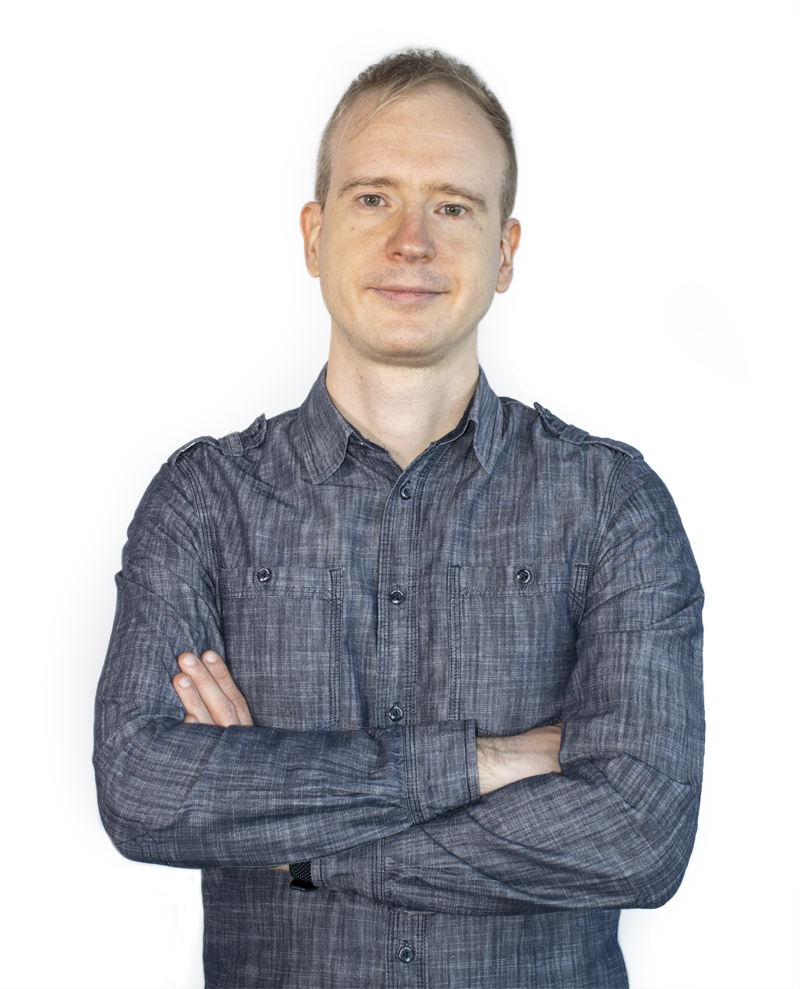
More about Ivan Kaštelan
- Ph.D. from the Faculty of Technical Sciences, Novi Sad
- University teacher at the department of computing and system control
- Freiburg Ph.D. exchange student
- Best student award 2008
- Best teacher award 2014
- 80+ papers
- 13+ technical solutions
- 12+ patents
